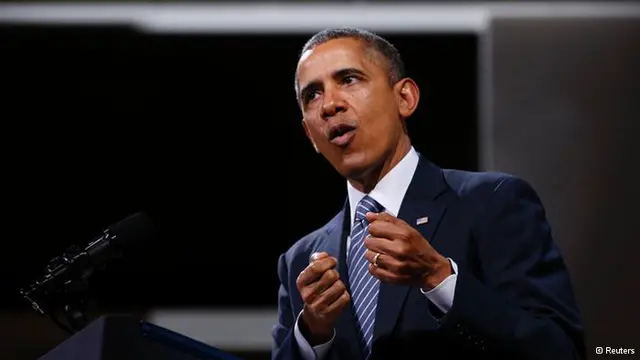US President Barack Obama heads to Asia tomorrow on a week-long visit which is likely to be notable more for its historical symbolism rather than any concrete outcomes.
Observers say that although the President's agenda will include many of the top priorities of Washington's policy - free trade, South China Sea maritime disputes and defence cooperation - the overriding theme would be reconciliation with two former wartime foes.
Mr Obama will be the first sitting US president to visit the Peace Memorial in Hiroshima, Japan, and only the third to visit Vietnam. While in Tokyo, he will also attend the Group of Seven (G-7) summit.
The top US diplomat for Asia, Mr Daniel Russel, alluded to the significance of the visits when he spoke to reporters on Wednesday, noting that the trip would highlight the US' "extraordinary reconciliation with two former enemies".
"You'll see that on this visit, as the President visits two nations with whom we've fought bitter wars, that we've now built an extraordinary record of cooperation and of partnership," he said.
White House National Security Council Senior Director for Asian Affairs Daniel Kritenbrink said progress in the US-Vietnam relationship has been particularly noteworthy. "I think it's impressive, if not breathtaking, to think about how far we've come, the progress that we've made between our two peoples, between our two governments, and the fact that we're now cooperating on a broad range of issues... on everything from our economic and trade relationship to our military relationship, and increasingly on regional and global issues."
In Vietnam, which is Mr Obama's first stop, the discussions are expected to focus on the Trans-Pacific Partnership free trade pact and defence cooperation.
In particular, observers will be looking to see if the US announces the lifting of a longstanding embargo on exports of lethal weapons to Vietnam. Washington partially lifted the ban for maritime defence items in 2014 and Hanoi has since pushed for a complete removal.
Such an announcement would likely irritate Beijing, though Dr Patrick Cronin of the Centre for a New American Security argues that a lifting of the ban would not lead to a rush to sell such weapons.
"I don't think we're there yet. I don't think we're talking about providing those kinds of lethal arms to Vietnam yet," he said. "But by lifting the ban, we're... moving the legal underbrush that could prevent future actions. So give yourselves future options without necessarily taking those options today in this environment."
On the South China Sea issue, discussions in Hanoi will likely focus on Asean's response to the upcoming ruling by the UN Permanent Court of Arbitration on the Philippines' case challenging Chinese territorial claims.
Said Dr Michael Green of CSIS: "In some ways the most important voice in respect to this tribunal will be Asean, and whether Asean can speak with one voice, and that's not going to be easy. And I imagine that's going to be an important part of this trip and the diplomacy that follows."
(THE STRAITS TIMES)
 简体中文
简体中文

